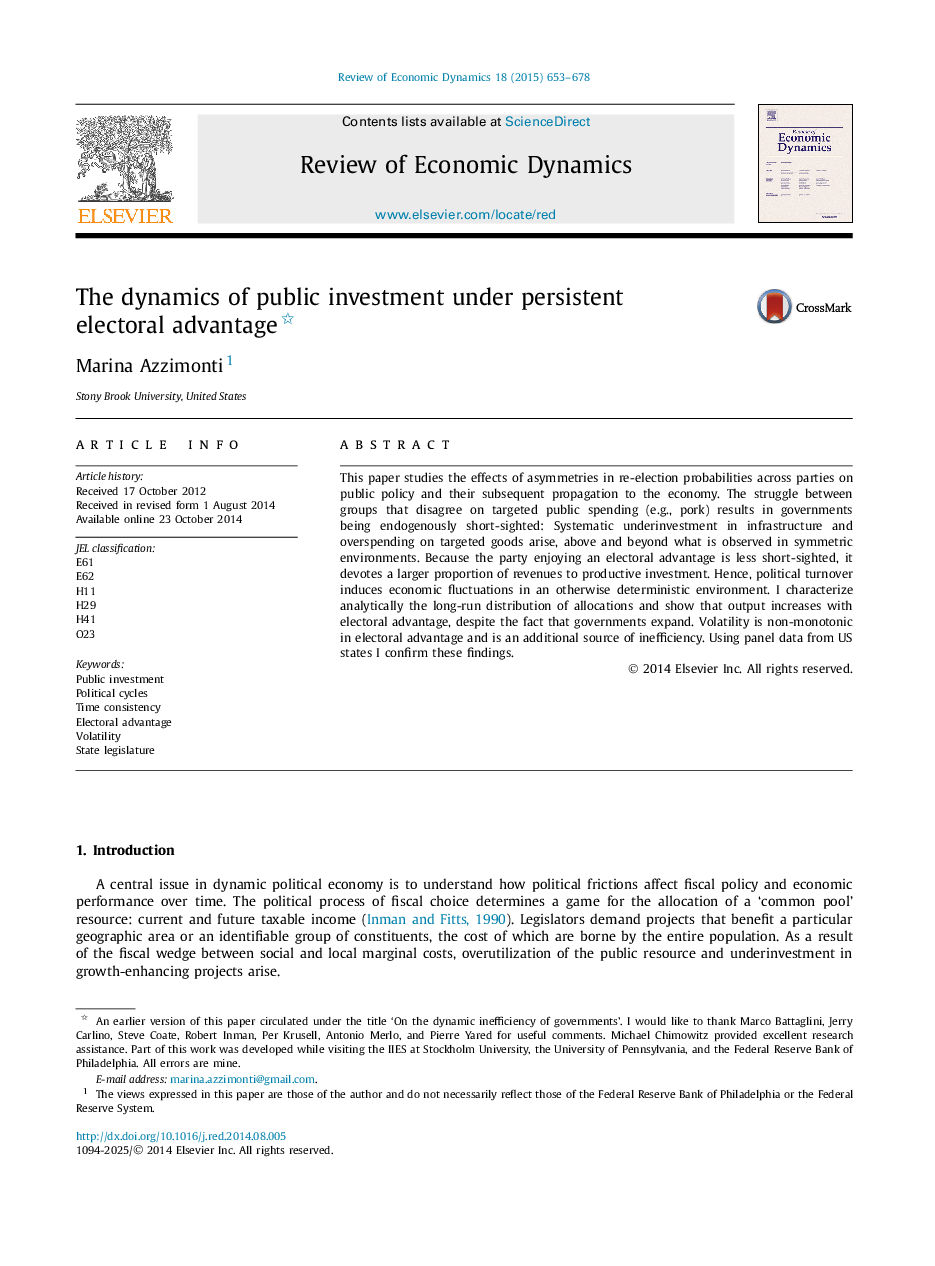| Article ID | Journal | Published Year | Pages | File Type |
|---|---|---|---|---|
| 986501 | Review of Economic Dynamics | 2015 | 26 Pages |
This paper studies the effects of asymmetries in re-election probabilities across parties on public policy and their subsequent propagation to the economy. The struggle between groups that disagree on targeted public spending (e.g., pork) results in governments being endogenously short-sighted: Systematic underinvestment in infrastructure and overspending on targeted goods arise, above and beyond what is observed in symmetric environments. Because the party enjoying an electoral advantage is less short-sighted, it devotes a larger proportion of revenues to productive investment. Hence, political turnover induces economic fluctuations in an otherwise deterministic environment. I characterize analytically the long-run distribution of allocations and show that output increases with electoral advantage, despite the fact that governments expand. Volatility is non-monotonic in electoral advantage and is an additional source of inefficiency. Using panel data from US states I confirm these findings.
